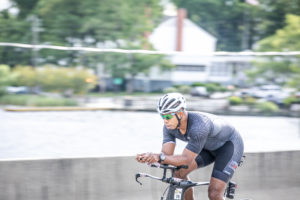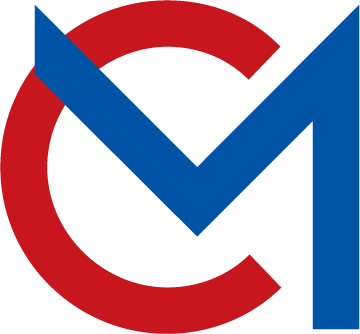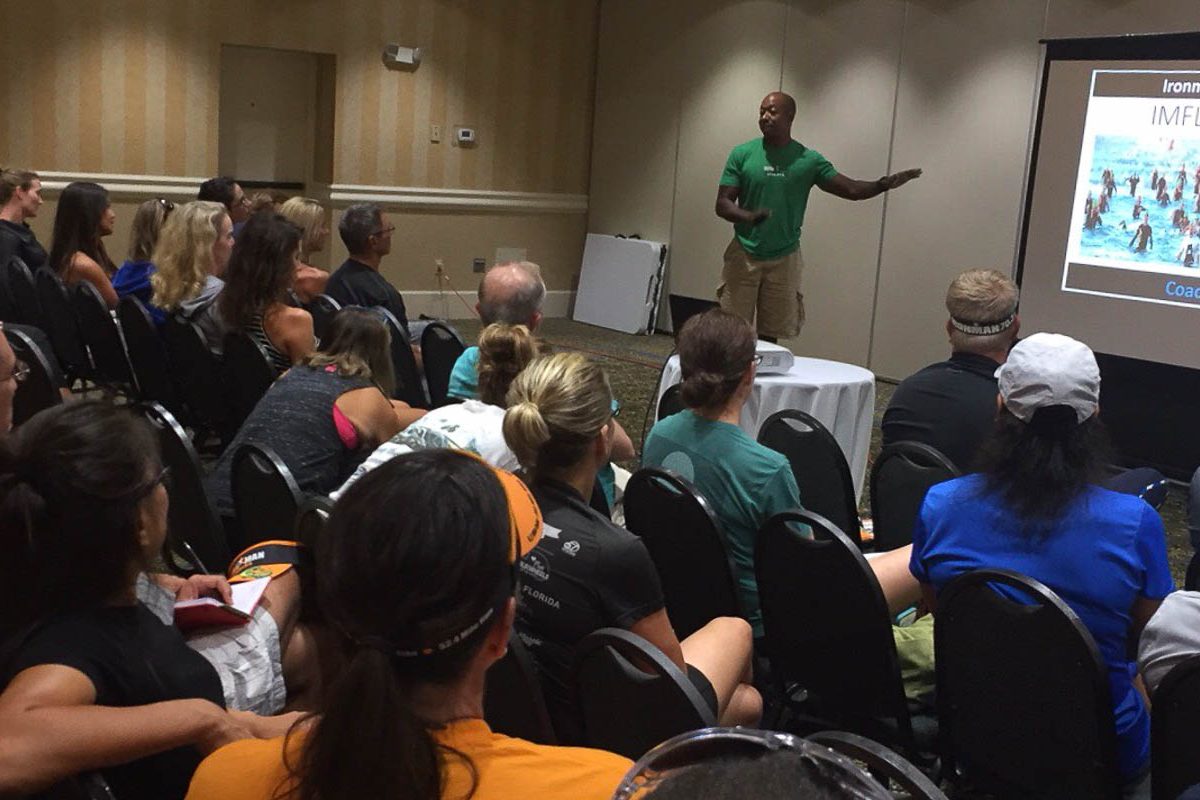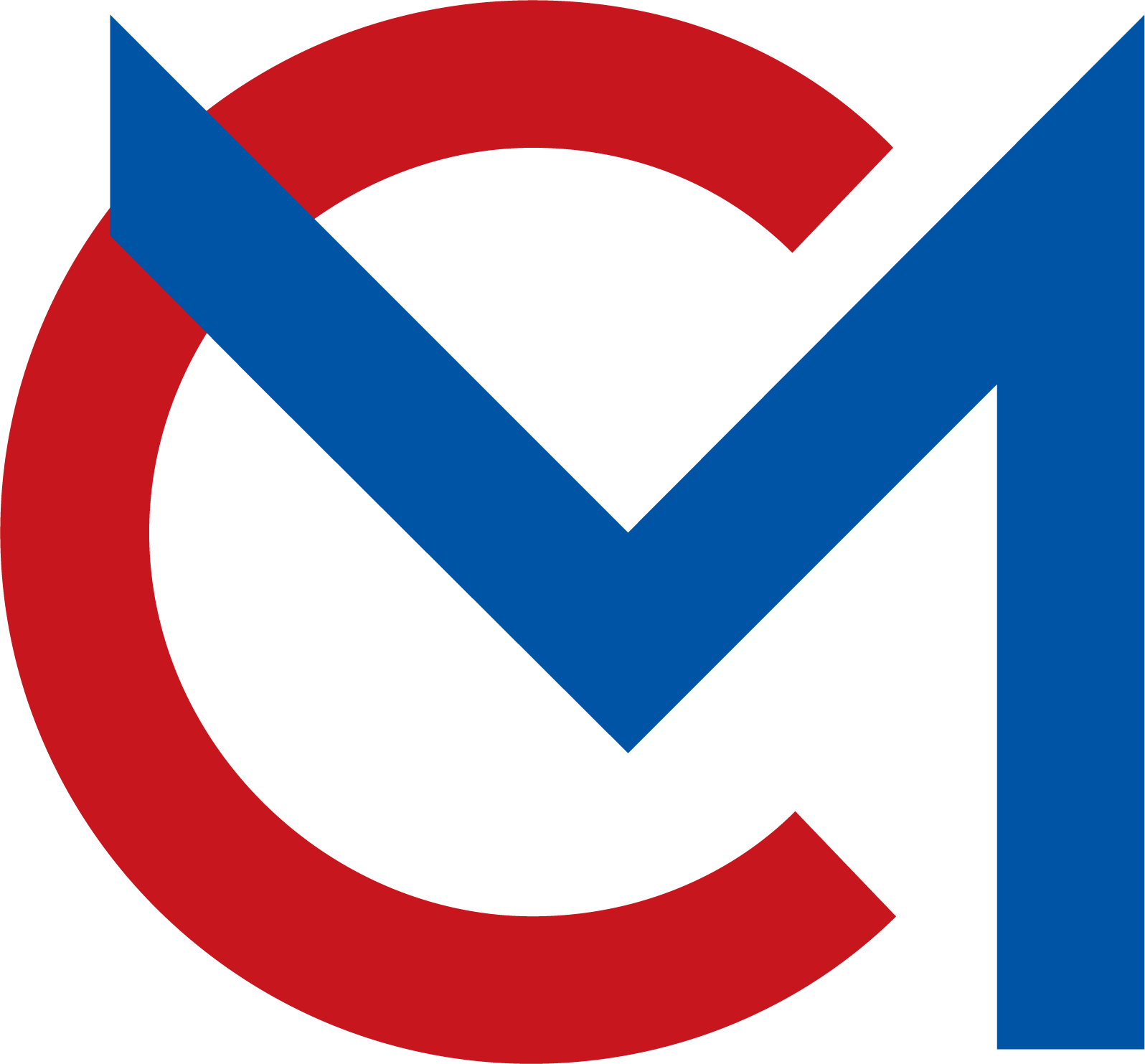If you’re thinking about attempting your first full IRONMAN, there’s a good chance you’re feeling, nervous, scared, or unsure of where to start with a training plan.
It’s normal to feel that way, but I’m going to let you in on a little secret: when you hire a coach, they can guide you through the entire process from start to finish so you can avoid problems like overtraining, undertraining, and the nasty little monster of imposter syndrome.
Many athletes start training on their own, get halfway into their program, and then decide they need a coach. By that time, you’re in a time crunch. If you hire a coach on the front end, they can act as a guide to help you determine the best training plan for you, a proper nutrition plan, what equipment you need, and everything else to get you to the end of the race.
While hiring a coach that can talk to you about your specific needs is the best way to get all your questions answered, I’m going to address some of the most common questions now.
Will this take me away from my family?
One of the biggest concerns people have when considering training for a full IRONMAN is about the time spent training and how much time it will take away from their family and personal life. In fact, many people won’t tackle the big races because of the time commitment.
However, that’s where a coach comes into the picture. A good coach is going to be committed to helping you find harmony between your family life, your professional life, and your training. When I work with an athlete, my goal is to build them a schedule that takes into consideration what happiness means to them.
For instance, if it’s important to you to make it to your kid’s soccer games on Saturdays, I’m going to work with you to build a plan that is optimized throughout the week to make sure you either have that day off or at least have enough time to make the game.
Training for an IRONMAN will take time, but if planned correctly, you can train effectively while still making time for the things that fill your cup as a human being.
As a coach, the worst thing I can do for you as an athlete is to cause you more stress in an area of your life that’s just a hobby. My job is to alleviate stress so you can still work, train, and spend time with your family and friends.
What will my training plan look like?
So, if we’re making a plan that’s going to get me ready to take on my first IRONMAN without alienating me from my family, what exactly is that going to look like?
Well, it depends.
Certainly, you’re going to have longer runs, bikes, and swims. That’s a given. However, each athlete has needs specific to that individual. Before making a plan tailored to your needs, your coach is going to have to get to know you.
Your coach should take time to discover how you learn, how you recover, how good you are at completing workouts consistently, and how your body reacts to different training sessions.
Typically, this process will take 30–60 days to make an assessment of your training style and specific needs. At that point, they will be able to give you feedback and begin developing a plan specifically tailored to you.

If a coach gives you their general philosophy on training, that’s great. But if they try to tell you exactly how they always do things—before making a thorough assessment of your needs—it’s probably time for a different coach.
Will my equipment be enough to meet my goals?
I’ve seen people do sprint triathlons on beach cruisers or on borrowed gear. However, as you do longer events, you have to be mindful of the quality of your equipment.
When you are just starting out in triathlons or other endurance sports, it’s probably okay to borrow equipment and try different things. When you get to the point where you’re doing longer events, you’ll need equipment that is set up specifically for you.
In the same way you don’t want to walk across town in shoes that are too small, you don’t want to try to do an IRONMAN in a wetsuit that chafes or a bike that isn’t suited for you or that can’t withstand the rigorous use that comes with training for and competing in such a long race.
Here’s the thing: the longer the race, the higher the cost. You’re going to have equipment issues, bike maintenance, and new shoes—and that’s not even considering the extra costs for groceries, electrolytes, hydration, etc.
You have to be prepared to invest in the proper equipment to avoid injury and maintain your health. Your coach should be able to sit down with you to map out everything you will need to help get you to the finish line.
Start your IRONMAN journey today
When you are ready to start preparing for your first IRONMAN, it’s time to get a coach to help you prepare and to guide you through different strategies that work for your lifestyle and abilities.
Hiring a coach is a cost, but it’s a cost that can prevent you from wasting a whole lot of money on the back end as you prepare to tackle a full IRONMAN 140.6 race. A coach offers support to help you avoid failure by practice, preparation, and training.
I work with every level of triathlete to make sure I meet them where they are physically, mentally, and emotionally, every step of the way. We approach the training process together as a team to reach the goals you have set out to accomplish.
If you are ready to map out your IRONMAN strategy, email me at info@morgonlatimore.com or book a phone call with me.
Morgon Latimore has been a personal trainer/endurance sports coach for more than 20 years, helping athletes meet their goals for triathlons, adventure races, Ultraman, ultramarathons, and even 5ks and 10ks. His commitment to creating a strong athlete-coach relationship and strengthening those he works with both physically and mentally has earned him the moniker “The Peoples Coach.”
Morgon has been certified as a personal trainer, nutritionist, spinning instructor, IRONMAN certified coach, USMS Level 3 Coach, and USMS Adult Learn to Swim Lead Instructor. He has also spent time training and developing U.S. Marines, Navy Sailors, Air Force Airmen, and Army Soldiers.


